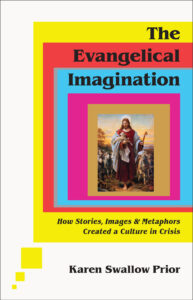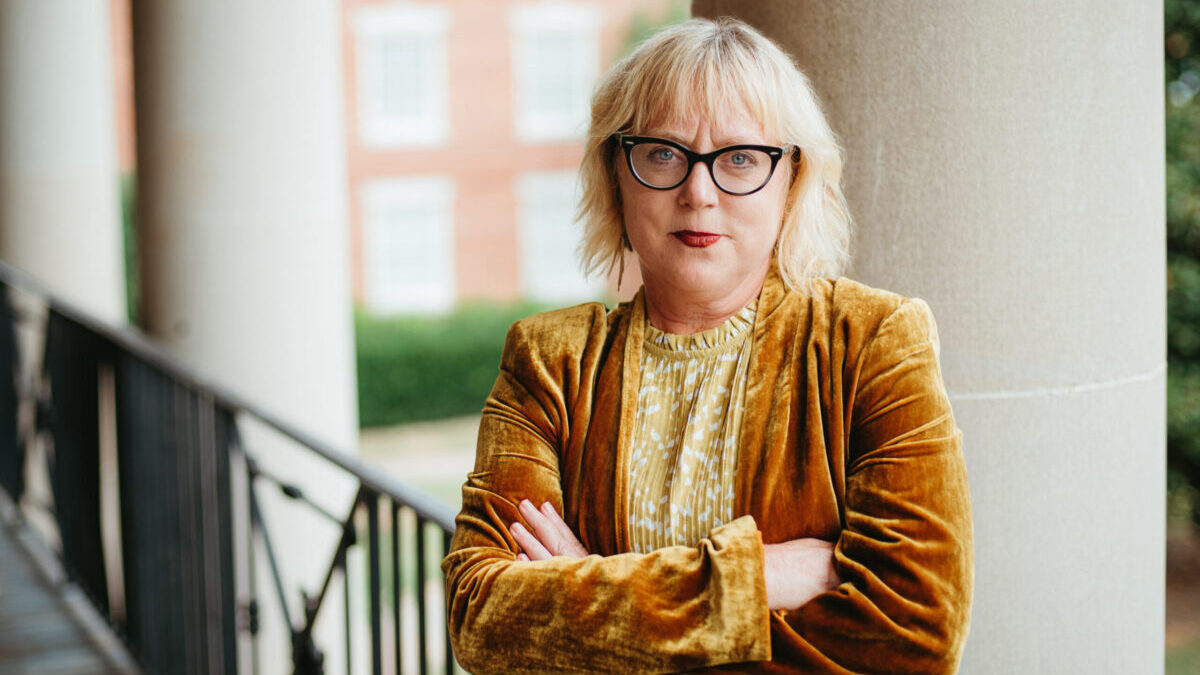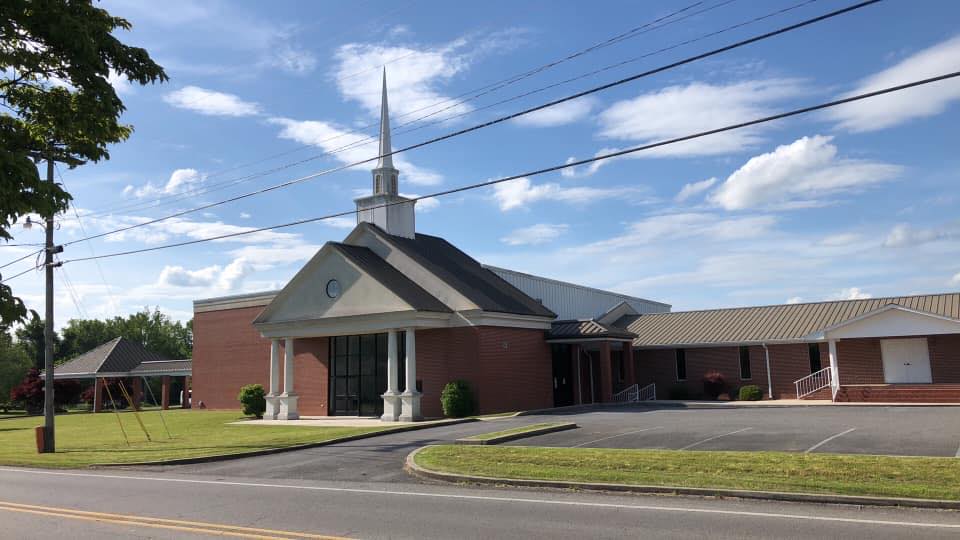The words “imagination” and “evangelical” are not frequently used together, as the former is frequently associated with creativity and fiction and the latter with the community of believers who hold fast to the absolute truth of the gospel.
But author and professor Karen Swallow Prior believes the two have much in common. She explores that idea in her latest book, “The Evangelical Imagination: How Stories, Images and Metaphors Created a Culture in Crisis.”
“I’m not just talking about creativity and making things. I’m really talking about what’s called a social imagination, which isn’t just our own individual imaginations but actually our inherited stories, myths, legends, ideas and ambitions for the good life.
“They’re underneath the surface — unexamined assumptions that still have a huge influence and effect on us until we realize that they’re there and we stop and reexamine them,” she said.
In the classroom
The desire to learn more about this idea arose from discussions with students in her English classes at Liberty University in Lynchburg, Virginia, and Southeastern Baptist Theological Seminary in Wake Forest, North Carolina.
While teaching Victorian literature, Prior and her students began to notice the similarities between Victorian culture and American evangelicalism, which raised a fundamental question: Are some of the ideas that characterize today’s evangelical culture Christian as much as they are Victorian?

Personally, Prior said she started on this journey when she found out that the belief in a physical bodily rapture wasn’t taught until the 19th century.
“I just thought it was something that all Christians believed in and had always been taught. That was a big ‘ah-ha’ moment for me,” she said.
For a time, this and similar reflections continued simply as an intellectual exercise, as interesting ideas to ponder.
However, as Prior’s students came and went and as years passed, more and more students noticed this correlation. One particular topic made this thought become more than a matter of academics.
‘Cultural, not Christian’
“One area where Victorian culture has taken over sound biblical teaching is in the area of sexual purity. I just know many students who have been violated or assaulted and saw themselves as not being sexually pure, which is something Victorians taught, where a woman who has been raped was considered ruined because she was no longer a virgin.
“That was a place where I had to stop and say, ‘This is a cultural attitude, not a biblical or Christian one,’” Prior said.
After working with college students for some 25 years, Prior said she feels that such distortions of what the Bible actually says is one of the reasons for the current deconstructionist movement among many younger Christians today.
“If we, the believers, get it wrong and get it distorted, then we have the responsibility when people reject our wrong teaching. If we’ve misrepresented what the Bible actually teaches, then not only do they no longer believe us, but they don’t believe the Bible either,” she said.
“The Evangelical Imagination” examines many of the topics where evangelical culture has been confused with biblical truth. Some of these topics include work ethic, church spaces, the role of the home and domestic life, and how a business model influenced the evangelical empire.
‘Know the times’
Heavily researched and referenced, “The Evangelical Imagination” is similar to a textbook, providing the history and origins of much of current American church culture. But Prior is adamant that it wasn’t written simply to be an interesting thought experiment.
Just as a missions organization would never send someone overseas without knowing the culture and the language, those who want to share the good news — the evangelicals — must know the current culture and language, even at home.
“To any pastors or leaders, I would say, we live in a culture. The Bible tells us that we need to know the times. We need to understand our culture in order to effectively deliver the gospel to the people in our culture and disciple them,” she said.
Prior encourages teachers and leaders today to distinguish what’s Christian and what’s cultural.
“If we have developed rules or policies that reflect the culture that are neutral, that’s fine. But sometimes what can happen is that we are still adopting cultural norms from 20, 30 or 40 years ago and really aren’t reaching the culture because we don’t know the culture anymore,” she said.
Language changes
She stresses the importance of recognizing that language changes and that one generation’s use of a word may be different from how others see it. She encourages clarifying meanings of words like “deconstruction” with those who are using them.
“Right now, most people who are beginning that process of questioning have two options in front of them: Continue to believe everything that they’ve been told and accepted or throw everything out. I think that this book and some others that have been coming out show a different way.”
As Prior writes in Chapter 1, “The metaphors, images and stories we live by orient us. To recognize these metaphors, images and stories — and to understand their power as part of the imagination we share — is to remove the blindfold and see.”
To learn more about Prior and “The Evangelical Imagination,” go to karenswallowprior.com.






Share with others: